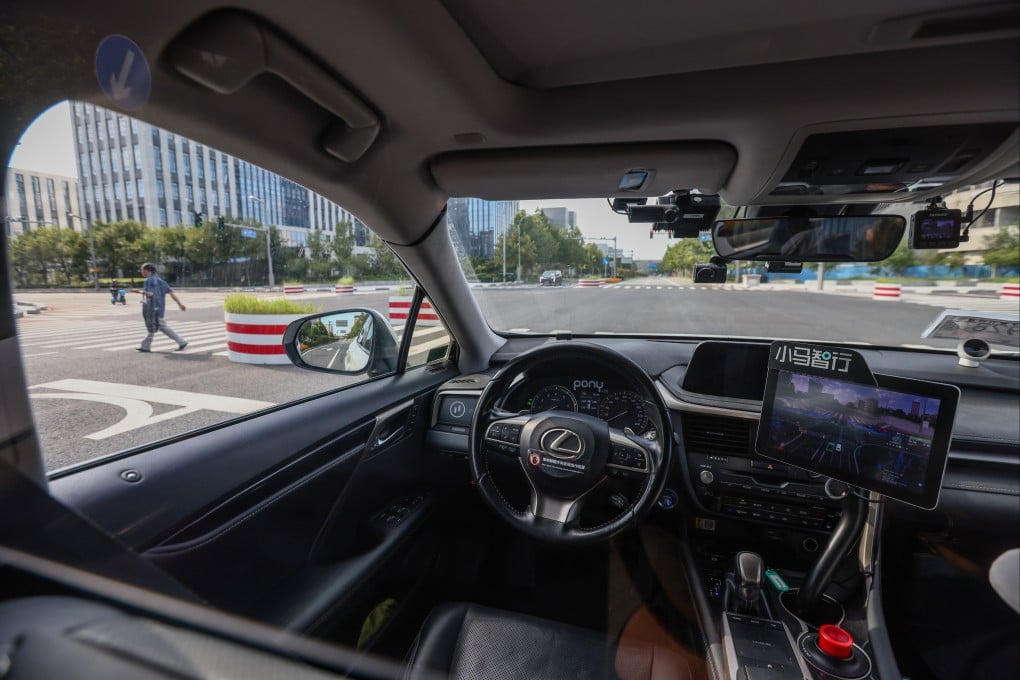China’s EV makers are intensifying efforts in autonomous driving technology, with L3 systems expected in one million cars by 2026 despite regulatory hurdles

A battle for supremacy in autonomous driving is escalating in mainland China, as major electric vehicle (EV) makers speed up development of cars with advanced driver assistance systems (ADAS) to lure buyers.
Their effort to build intelligent cars in the world’s largest automotive market represents a threat to Tesla’s position as a global leader in self-driving, analysts said.
“Preliminary autonomous driving systems have emerged as a new battlefront for electric car builders in China because they help propel sales and increase brand awareness,” said Phate Zhang, founder of Shanghai-based electric-car data provider CnEVPost. “The leading players are unanimous that it is necessary to equip their cars with the best hardware and software to compete in the fast-growing market.”
Consultancy Counterpoint Research estimated in a report early this year that about 1 million EVs in China will meet the Level 3 (L3) autonomous driving standard in 2026, and the mainland carmakers will continue to play an important role globally in designing and building self-driving cars.
A typical L3 car has environment detection capability and can make informed decisions, such as accelerating past a slow-moving vehicle, according to standards for autonomous driving set by US-based SAE International. But the drivers are still required to intervene under certain circumstances.
Top mainland EV makers, such as BYD and Li Auto, have all launched new models fitted with ADAS software with L3 capability. However, Beijing has yet to approve the use of L3 and higher autonomous-driving systems on the mainland, with drivers required to keep their hands on the steering wheel at all times.
Sales of pure electric and hybrid cars in China are the highest in the world, accounting for 65 per cent of the global total in the first half of this year, according to the China Passenger Car Association.
China’s EV industry and supply-chain are now considered global leaders in terms of sales and technology, according to David Xu Daquan, the China president of Bosch, the world’s largest automotive supplier.
“Autonomous driving is an area where Chinese EV assemblers and technology providers are still playing catch-up with Tesla,” said Gao Shen, an independent analyst in Shanghai.
The massive efforts made by Chinese players to improve their technologies will be seen when Tesla debuts the FSD on the mainland next year, he added.
Tesla’s software has not yet been approved for use in China, but is expected to enter testing in the first quarter of 2025. In the United States, Tesla charges US$8,000 to install FSD, on top of a US$99 monthly subscription.
Tesla is doubling down on efforts to promote the FSD globally and plans to collect and process data in China to support its mainland operations.
Grace Tao, Tesla’s vice-president of external relations in China, wrote in an article in the official People’s Daily newspaper in April, that autonomous driving would be a key growth driver for the country’s EV sector. She said that the technology will spawn new business models such as robotaxis, a vision that Musk has embraced.
Most ADAS software from Chinese carmakers are available to buyers for free.
Last month, Jiyue, a premium EV maker backed by Chinese search-engine giant Baidu, began taking orders for its second model, Jiyue 07, that features a high level of autonomy.
Supported by Apollo 2.0, a self-driving software developed by Baidu, the sedan has a range of 660km on a single charge, beating Tesla Model 3’s driving range of 606km.
Last October, when Jiyue began delivering the Jiyue 01 SUV, it said the Apollo system could handle most driving situations independently, matching the L4 standard.
Up to 15 per cent of all new EVs on the mainland will have L3 at least by 2026, according to Li Zhenyu, Baidu’s vice-president and head of Apollo intelligent driving business division.



